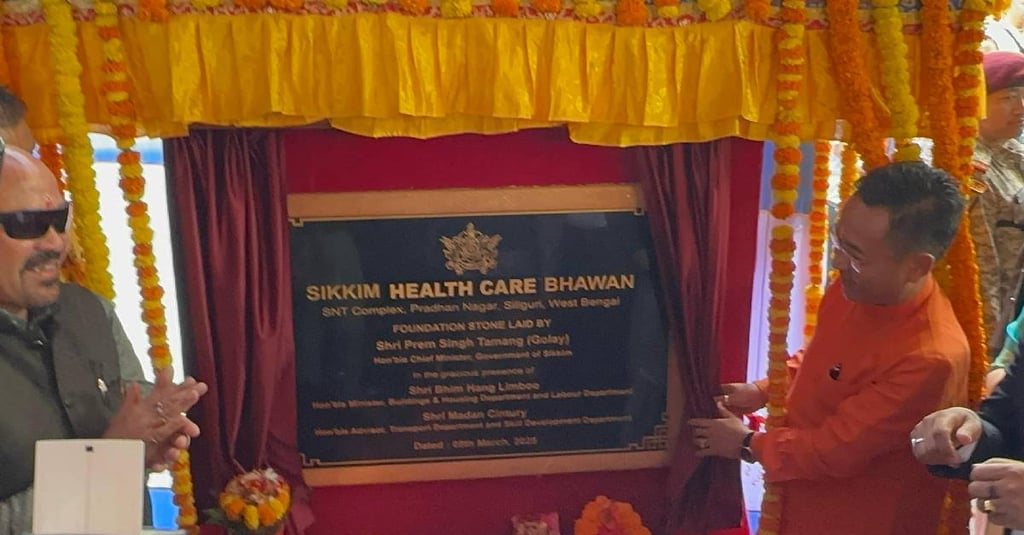CM Tamang lays foundation stone for Rs 197 crore Sikkim Health Care Center in Siliguri
The project, costing Rs 197 crore and spread over 2.1 acres, aims to centralize various Sikkim government offices in Siliguri while providing accommodation and medical support for people seeking treatment in the city.
LOCAL


Sikkim Chief Minister Prem Singh Golay today laid the foundation stone for a Health Care Center and guest house at the SNT Complex in Siliguri, along with the renovation of the bus terminus. The project, costing Rs 197 crore and spread over 2.1 acres, aims to centralize various Sikkim government offices in Siliguri while providing accommodation and medical support for people seeking treatment in the city.
Speaking at the event, CM Golay said that the project had been a long-standing plan of the state government but had faced challenges due to encroachment issues from nearby structures and residences. However, he assured that a consensus had been reached with local residents, and the West Bengal government and the Siliguri Municipal Corporation had given their approval for the construction. The health care center will feature 50 rooms with kitchen facilities and will be equipped with doctors and nurses to cater to patients. Additionally, it will have suites for the Governor, Chief Minister, Assembly Speaker, Ministers, and legislators. The complex will also include an automatic bus parking facility, taxi parking, and a shopping complex, with the entire project expected to be completed within 24 months.
Highlighting Siliguri’s importance for the people of Sikkim, CM Golay noted that it serves as the nearest metropolitan city and a vital hub for healthcare, shopping, and transit. Many Sikkimese people travel to Siliguri for medical treatment, and the new center aims to provide affordable accommodation for those in need. He clarified that the facility would not be used as a guest house for government officers but would function as a transit facility for patients. Stays at the center would be limited to four days, ensuring it remains accessible to those in urgent need.
